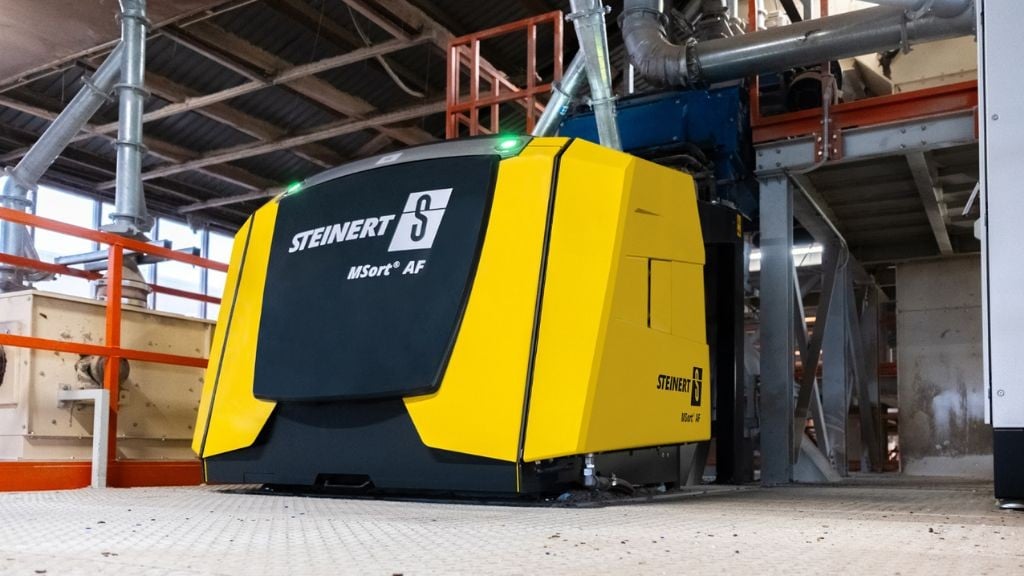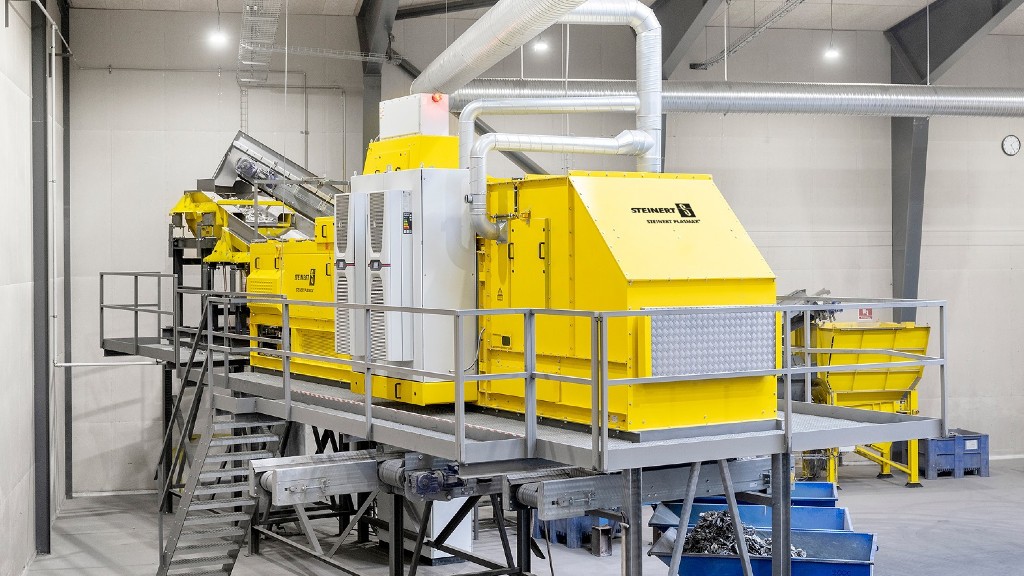Glass recycler adds two STEINERT sorters for improved material processing in Denmark
The new sorting machines are capable of complying with the strict regulations for glass recycling and processing

At the Reiling glass recycling plant in Næstved, about 70 km outside of Copenhagen, two sorters have been replaced by the latest STEINERT MSort generation. The fine glass line at this location is now capable of sorting the 4 to10-mm fraction. Other MSort systems in the recycling plant running on the 10 to 60-mm line for the past 10 years are still in excellent condition and can continue running without any major maintenance.
Benedikt Heitmann, the technical managing director of Reiling Glass Recycling GmbH & Co. KG, shared with STEINERT that the sorting facility receives two types of glass: hollow glass, such as containers for drinks and packaging for food, and flat glass, like insulating glass and residential and car windows. Differentiating between the different types of glass is important, he says, because the sorting is different. For hollow glass, recycling in Denmark starts either at the collection container or at the deposit return system. However, there is also a third stream—in some regions, glass and metal are collected together from private households. Reiling processes these material streams at the Næstved site to return the cleaned and sorted hollow glass to the cycle in the form of recycled glass cullet.
The threshold values for these material flows are extremely strict. "No matter how bad the input material of the hollow glass that ends up with us is," explains Heitmann, "the sorted product at the end of the entire sorting line is subject to strict limits. Even small quantities of impurities can cause major damage in the manufacture of new glass products. We return more than 90 percent of the glass that arrives here to the glassworks." One of Heitmann's tasks is to comply with the threshold values by selecting the right technology. The task is not easy, as the requirements for the composition of the cullet quality are quite high.
Mechanically processing hollow glass
The first steps at the recycling plant are crushing and pre-sorting. Without these steps, there is no raw material from the recycling process. A roller crushes the glass and exposes the different materials. There are light material extractors that separate the labels and paper as well as magnets and non-ferrous metal separators that remove ferrous and non-ferrous materials from the glass. Plastics are also separated after the pre-sorting process. However, these processes mean that there is a non-negligible residual fraction that still contains glass.
MSort systems in glass recovery and fine sorting
In order to further increase the recovery of raw materials, Reiling uses a recovery line. In this line, the waste material and glass in the 0 to 10-mm fraction that accumulates in the main processing plant is fed through. These quantities run through optical sorting systems where the materials are fed through the optical sensors again at a slower speed to ensure only the correct materials pass through.
Optical sorting uses sensors to transmit light to ensure that the glass is transparent. If no light comes through, it must be an interfering material such as ceramics, stones, porcelain, or metal. Air blasts then separate the sorting material A from material B. The recovery line consists of a fine sorting and a coarse sorting line and here there are several MSort sorting systems of different generations. The line for fine glass, which sorts 4-10 mm cullet, is now equipped with the latest systems in the yellow STEINERT design: MSort AF for the rougher stage and MSort AK for the cleaner stage. As well, the MSort AX sorts the 10 to 60-mm cullet; this machine has been in use since 2014. Once the impurities have been removed, the material is then sorted by colour.
Reiling has been buying MSort since the very beginning
MSort sorting systems have been on the market since 1996 and the very next year were already sorting at Reiling. "We have been relying on MSort for a long time and under the STEINERT umbrella we are once again investing in sorting technology. For this reason, we are building on our long-standing supplier and following the path to the new generation of sorting systems in glass recycling. Today's progress is tomorrow's standard," concludes Heitmann, who would like to return more than 90 percent to the recycling loop in the future.



